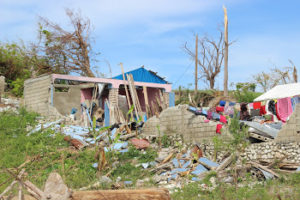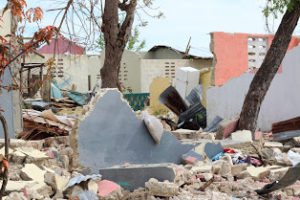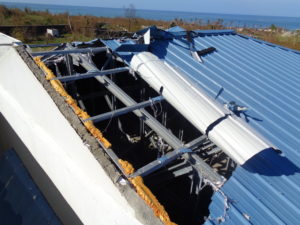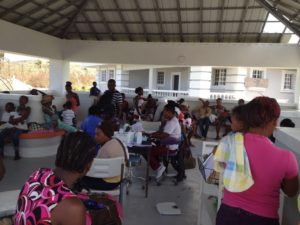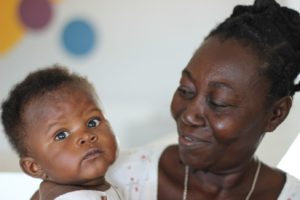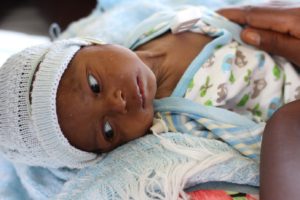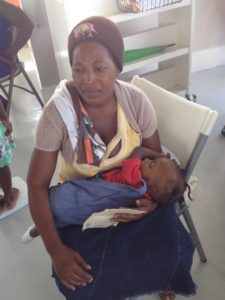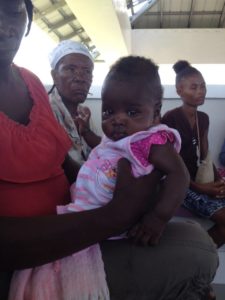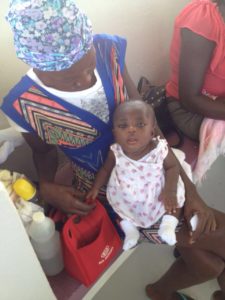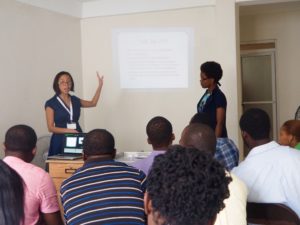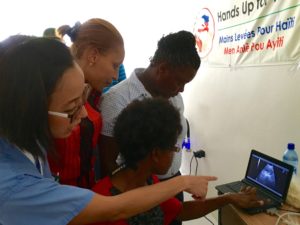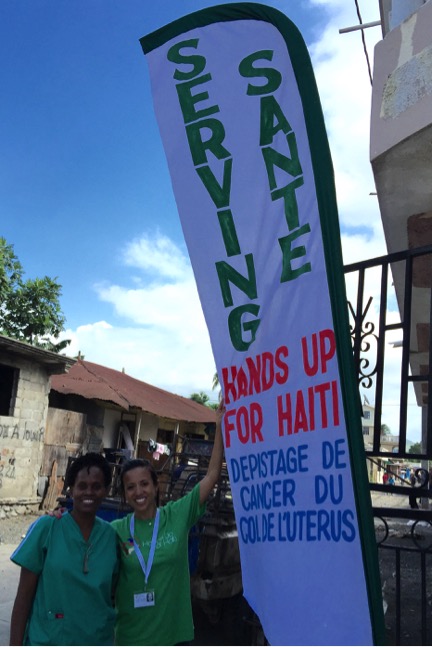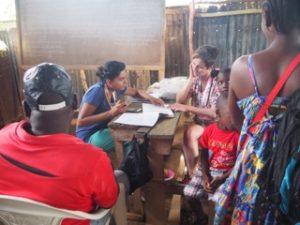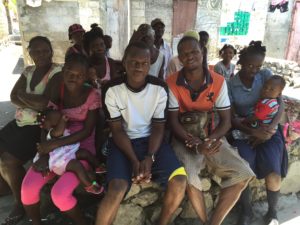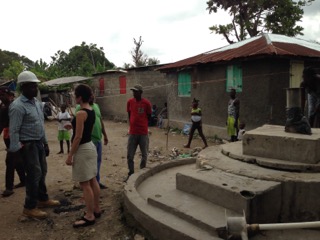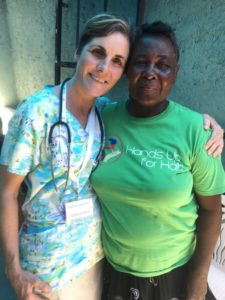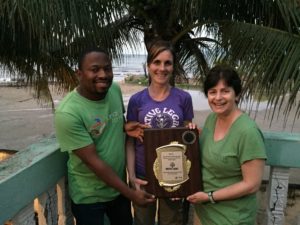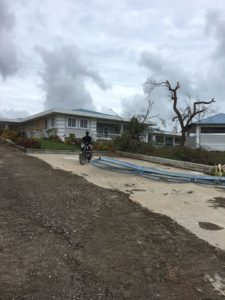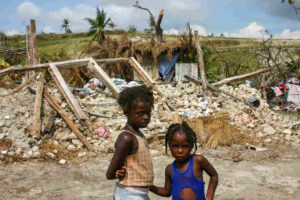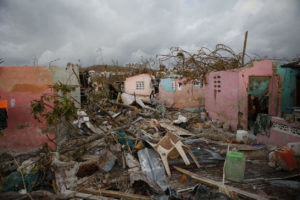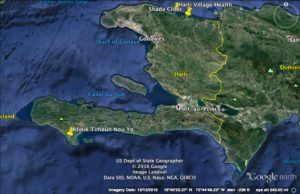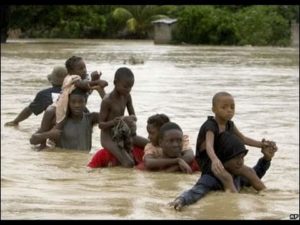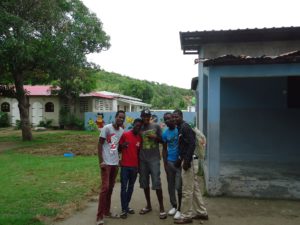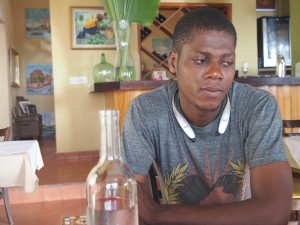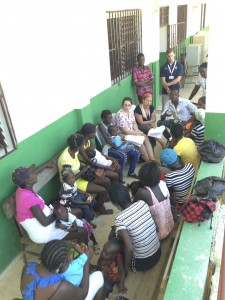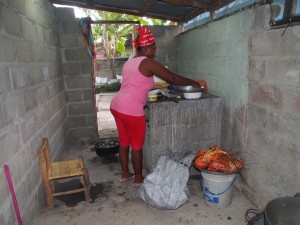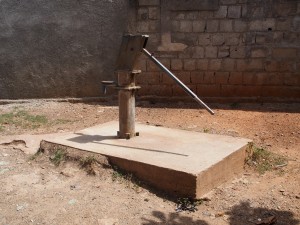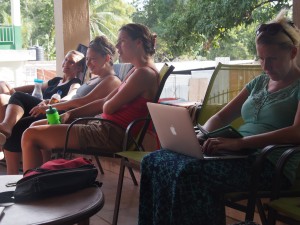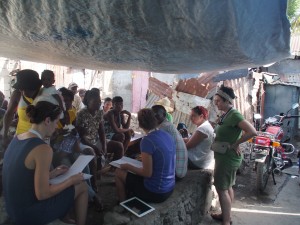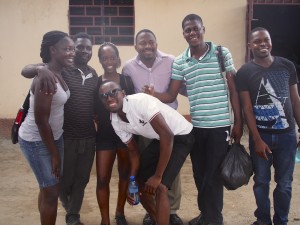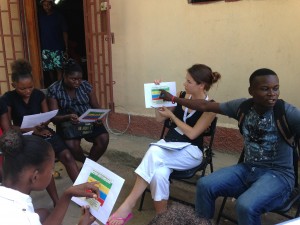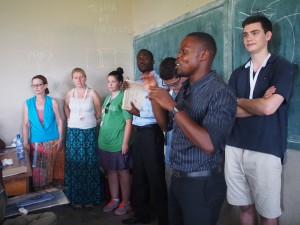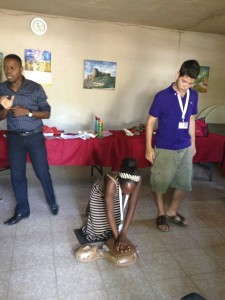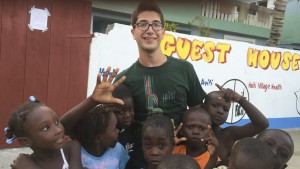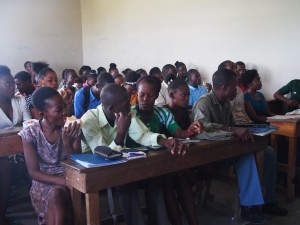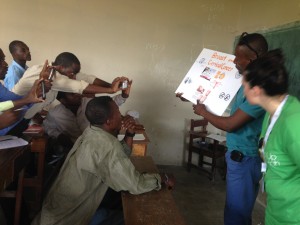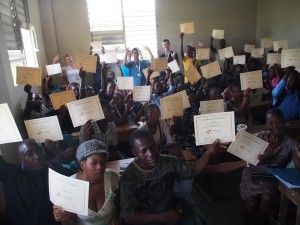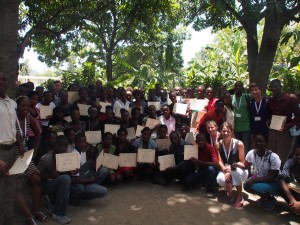Last week I returned from my fifth trip to Northern Haiti. Every October, I lead a group of doctors, nurses and lay volunteers from the US and Canada on a medical mission. This year, our team treated 416 patients including 256 children and 160 adults. We gave community lectures to women’s and youth groups. We visited two newly built water wells for which our team raised the necessary funds and the sites for the wells we will build next year; each well will provide about 4,000 people with access to fresh, clean water for more than 35 years. And, during this week, we also referred two children for hospitalization, both for severe and life threatening malnutrition.
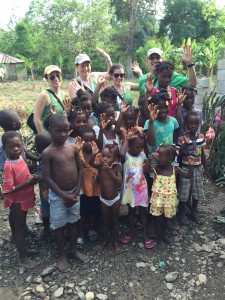
Allison Platt, Marilyn Jacobowitz, Johanna Navarrete and Elliot Barsh with happy children at the new Biclaire water well
Malnutrition in Haiti is common and as an organization HUFH is trying to tackle this difficult problem through our partnership with MFK (Meds and Food for Kids). MFK produces Medika Mamba, a peanut butter based, vitamin rich food which is given to children 6-59 months who are acutely malnourished. As part of our malnutrition program, HUFH has provided treatment for more than 200 children. During this trip, I was able to see many of the children who have graduated from our program and are doing very well and that was gratifying. I also saw, however, two of the worst cases of malnutrition in my career, children so ill we had to have them hospitalized to save their lives.
How does an infant or child get so malnourished that they require hospitalization? Here are two stories…
Celestine is a six month old infant who was born two months premature. Her mother told us that she refused the breast, likely because she was too premature at birth to suck. The ability to suck develops around 34 weeks gestation, so at 32 weeks she was not able to do that or at least not well. Without this stimulation at the breast, her mother’s milk dried up quickly, leaving the mother with no way to adequately feed her baby. She could only afford formula sporadically and would ration it to two feeds a day. But to be healthy, a newborn needs to feed 8-12x/day and a 6-month-old 5-6x/day. Celestine was brought to Open Door clinic to see me on Tuesday, October 14 because she was refusing to eat and her mother desperately needed help. She dressed her in a beautiful white lacy dress and at first glance, Celestine appeared to be a small newborn baby. But when the mother removed her dress, my heart sank. I saw a cachectic infant with marasmus: severe malnutrition due to insufficient caloric intake. Her ribs visible, muscles wasting, too weak to support her head. She stared up at us, however, with her beautiful brown eyes while sucking on her fingers. Her weight 2.5 kg (5lbs 8oz)! “How is she alive?” I asked myself.
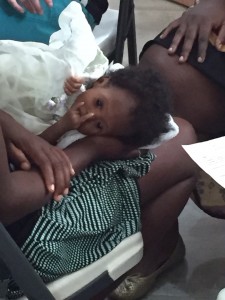
Celestine in her white dress
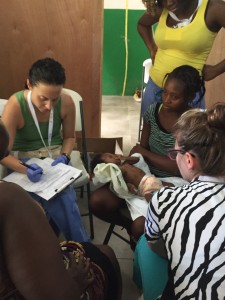
Dr. Allison Platt, Celestine with her mother, Dinia Joseph in yellow and Kristin Ward
Immediately, I spoke with Dr. Dieula Toussaint (a Haitian physician, part of the in-country HUFH team) and we decided that she needed inpatient treatment at Hospital Sacre Coeur in Milot. Referring a child to the hospital in Haiti is not an easy task. First, we needed to figure out how to get her there. There is no ambulance to call and the mother does not have a car, phone, food or any money. So it was up to us. We decided to send Celestine and her mother to the hospital with Franz, one of our Haitian medical translators, and Dinia, my medical assistant here in NY. Having my own Medical Assistant go with her was invaluable, because I knew Dinia, a Haitian American fluent in Haitian Creole, would make sure that Celestine was admitted and cared for appropriately. I gave them my referral note and money from HUFH to cover admission costs and gas for the car.
What happens when you get to the hospital in Haiti? After they triage you, you get in line with your supply list, even if you are dying! In fact, there are 2 lines, one for those with money to pay and the other, much longer line, for those who will have to pay later. You see there is no obligation to treat anyone, not even sick babies! Families have to provide all the hospital supplies including medicines, IV fluids, IV tubing and bed linens to just name a few. While you are there as a patient your family will also have to care for you, bathing and feeding you. Dinia was born in Haiti but has lived most of her life in the US; before this day, she had never been to a hospital in Haiti. This experience really affected her: the lines, the very ill baby, the glaring disparities in the world… but thankfully, she persevered and made sure Celestine and her mother got admitted with their supplies and medicine.
The very next day, Wednesday October 15, at a clinic in Joulitrou, a father brought his 4 year old son, Wisely, to the clinic. His father said he became swollen with no appetite over the last 8 days. Wisely had an orange tinge to his hair and significant swelling of his face, abdomen and feet. At quick glance, he looked like a chubby little boy. But, unfortunately he suffered from a type of malnutrition called Kwashiorkor, a form of severe protein-energy malnutrition characterized by edema, anorexia and an enlarged fatty liver. He is at significant risk for liver failure, infection and death. How did this happen?

Katrina Bates, Cass King with Wisely and his father at triage.
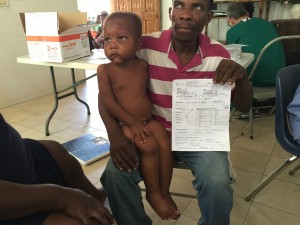
Wisely, his father and the referral note.
Wisely is the fifth child of six; the youngest is 18 months old. Wisely was breastfed until age 2, the recommended length of time in the developing world, around the time his mother became pregnant with his younger sibling. When he was weaned it is likely that his breastmilk diet was replaced with a diet high in carbohydrates (likely sugar) and deficient in protein. Milk, meat, and eggs are luxury items and infrequently attainable for families like Wisely’s. What to do? He went to the hospital in Milot for treatment. We arranged this with the head nurse of Joulitrou clinic, Carole. HUFH gave her the necessary funds for admission and transportation.
Right now, these children are receiving care at the hospital in Milot. We are in contact with the director of the hospital, and HUFH will cover all of the costs for the treatment of these children. Recognizing that both our visiting teams and our in-country physicians need to admit children to the hospital who do not have the funds necessary to receive care, HUFH is in talks now to formalize a referral program for our patients.
We continue to follow these children. After visiting the hospital a week later, Dr. Dieula reports Wisely is doing better than Celestine, but both are receiving treatment and slowly improving.
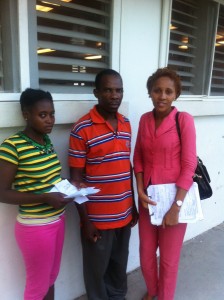
Dr. Dieula Toussaint with the parents.
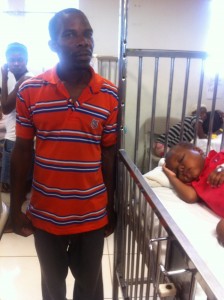
Wisely in the hospital.
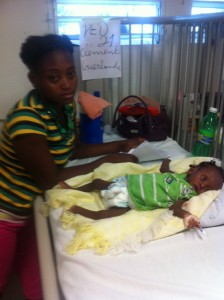
Celestine and Wisely in the hospital.
Yesterday, I was sitting in my office in NY when Dinia popped her head in and said, “Dr. Platt, I am going back to Haiti with you next year! I have to see that baby (Celestine) again… she will be big and strong!” I sighed and nodded, not having as much optimism as Dinia, but reminding myself of all the children who had graduated successfully from our program. We need to help these children sooner and continue to work towards our goal of preventing malnutrition in the first instance so it does not rob them of a chance for a healthy future. I am hopeful.
AP
If you would like to help us help these children and others like them, please click here for information on how to donate.
